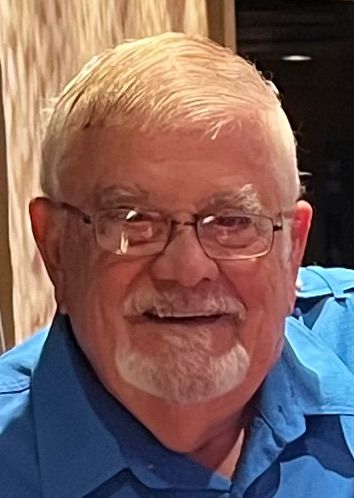By COL (Ret) Gary L. Gresh, AG, U.S. Army
Are Leaders born to lead, or is Leadership a learned skill?
This question is perhaps the most asked question when I talk to audiences about my Army experiences since I retired.
Most everyone fancies themselves a leader, or at least hope they are a leader. Few people start life by saying, “I want to be a follower.” And yet, most of us actually are followers of one type or another most of our lives. So why is leadership so important? We tend to follow our parent's lead, our coach's lead, our professor’s lead, and eventually our boss’s lead. Leadership is, therefore, a learned skill. The key is whether you learn it through successes or through failures.

So, if we are all followers to some extent, why worry so much about leadership? Well, how you follow someone depends a lot on how you lead them.
Good leaders always try to encapsulate their leadership traits into a list of things to do if you want to be an effective leader. One of the best such lists I have seen was made by Mr. Robert McDonald, a Cabinet member and the VA Secretary under President Obama. In his speeches he always emphasizes a value-based leadership style encapsulating ten principles of leadership. They Are:
- Lead a life guided by purpose. When looking for a job, examine a company’s purpose, values, and people.
- Everyone wants to succeed and success is contagious. Treat your employees like they want to succeed, not like they want to fail.
- Put people in the right jobs. Identify your employees’ strengths and then place them in roles that complement those strengths.
- Character is the most important trait of a leader. Leaders must have integrity and take responsibility for their mistakes.
- Diverse groups of people are more innovative than homogenous groups. Diversity sparks ideas and innovation, so companies must employ a diverse group of people.
- Ineffective strategies, systems and culture are bigger barriers to achievement than the talents of people. It’s important to blend a high-performance culture with robust systems and sound strategies.
- Some people in the organization will not make it on the journey, and some employees will not be a good fit for your company.
- Organizations must renew themselves. Leaders should always think about what changes are needed to stay relevant in the marketplace and fulfill the company's purpose.
- Recruiting is a top priority. Somewhere here is someone who will be giving a presentation here years from now.
- The true test of a leader is the organization’s performance after the leader departs. If you want to determine whether a leader has been successful, “look at their fingerprints and footprints,” concluded McDonald.

While I totally believe in a Value-Based approach to leadership, I have always tried to combine it into three simple principles. As an Army Officer for thirty years in two different branches and many different units, working with both volunteers and those drafted into the Army, I wanted to be a bit simpler in my approach.
One might think you need a different approach to leadership if you are leading those who do not care to be there, as opposed to those who volunteered. However, I found that it made absolutely little difference in your leadership style whether your followers were volunteers or not. Rather, they all looked at me the same - “What does he believe?” “What does he do?” and “Does he care about me?”
I have always loved these “RULE OF THREES”, like West Point’s “Duty, Honor, Country”, and there are many other examples from Aristotle to today’s classrooms. For Example:
In his book Rhetoric, Aristotle discussed the three unities: “Dramatic unity of time, place and action.”
Physicians postulate that - you can survive three minutes without breathable air (unconsciousness), or in icy water. You can survive three hours in a harsh environment (extreme heat or cold). You can survive three days without drinkable water. You can survive three weeks without food.
Mathematicians say - a mathematical rule asserting that the value of one unknown quantity in a proportion is found by multiplying the denominator of each ratio by the numerator of the other.
Writers’ guides say - things that come in threes are more memorable, satisfying, and effective than other numbers of things. Such as “The Three Musketeers.”
Math postulates that - three is the smallest number of elements that can form a pattern.
Movie makers say - an audience is far more likely to remember information if it’s presented in groups of three.
Speech writers say - tell them what you are going to tell them, tell them, and then tell them what you told them.
The Rule of Three applies to content creation because human beings think best and remember concepts far more easily when they are grouped into threes.

So, what are my three principles of Leadership? They are "BE KNOWLEDGEABLE,” “SET THE EXAMPLE,” and “TRUST BUT VERIFY.”
To expound - BE KNOWLEDGEABLE - Being knowledgeable means a lot of study and practice. Know your craft or specialty. Knowing how to break down a weapon is just as important as knowing any principles of leadership. You must be proficient in your specialty and exude confidence. You can’t expect others to do anything if you cannot do it yourself. Oh, your subordinates may be better at some skills than you are, such as computer repair, but you must demonstrate a general understanding and be able to use the system as well as they can or they will not see you as much of a leader.
SET THE EXAMPLE - Set the example always. Be the moral person you expect them to be. You cannot be friends, drinking buddies, and confederates with your subordinates and remain an effective leader. Leadership can be lonely. Your confidants should be your XO, your staff, and your Sergeant Major or First Sergeant. You do not inspire respect if you show your weaknesses and flaws to your friends. We all have weaknesses and flaws; you must keep those under moral control when you are in any leadership position. Always encourage mentorship and growth in your subordinates.
TRUST BUT VERIFY - You should instill trust up and down the chain of command. Let your subordinates shine and thrive. They will make you look good. Selecting competent staff and those you trust will make you a better leader. Learn to use subordinates’ strengths to enhance your weaknesses. No one can do it all alone. As Mr. McDonald often points out, one of your greatest successes as a leader will be how the organization carries on without you when you are gone. A good leader leaves behind a very effective organization. Let your subordinates grow and develop.
A good leader shines because it’s obvious to outsiders that the organization is a good team. Dictators lose subordinates and encourage chaos and rebellion. Subordinates do not threaten true leaders; leaders encourage ideas, and recognize and reward subordinates for their ideas.
It’s absolutely amazing how much an organization can achieve if the leader credits those who contribute to the unit's success and does not care who gets the credit. Strive to be an inclusive leader.

COL (Ret) Gary L. Gresh (Greshg@bellsouth.net), Author, Amazon Books Publishing. COL (Ret) Gresh is an AG Corps Hall of Fame inductee, Class of 2011, and a Distinguished Member of the Corps. COL (Ret) Gresh served in many AG, Special Forces, Ranger, and Airborne Units commanding at every level from a Platoon leader in Vietnam in the 101st Airborne Division, to the Commander, 18thPersonnel Group out of then Fort Bragg, NC during Operation Desert Shield / Desert Storm. During his 30 years of service, he earned over 24 awards and decorations in the Army, including the Distinguished Flying Cross, Two Bronze Stars, and The Legion of Merit. The Secretary of the Army awarded COL (Ret) Gresh the U.S. Army Distinguished Service Medal upon his retirement as the 20th Commandant of the Adjutant General School and the 7th Chief of the Corps.
